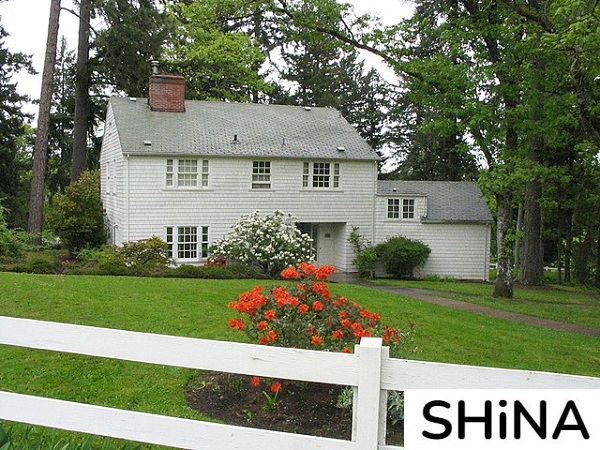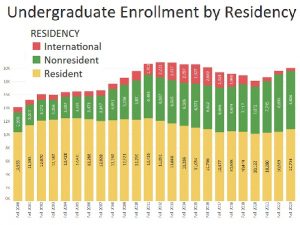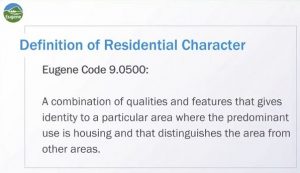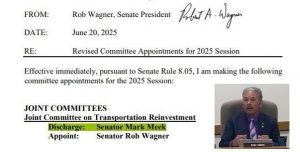Ward 2 candidates: Matt Keating warms up the crowd; crowd warms to Lisa Warnes
7 min read
The Ward 2 City Council candidates spoke at the Wayne Morse Farm April 16. Matt Keating warmed up the crowd, but not in a good way. At the Southwest Hills neighborhood meeting, Matt took a question from Sara Wolk.
Sara Wolk (SHiNA meeting attendee): We have an elderly gentleman who lives on the curb in front of our office and has for 30 years, from what I understand. And he has severe cognitive disability. He’s—and I talk with our local CAHOOTS and police about this all the time. What they tell me is they take him to somewhere to stabilize. They will treat him for scabies. They’ll give him a haircut. And then they just turn him back out on the street because there’s nowhere for a person like him to go.
And he—there isn’t really enough places for people to go who want to go somewhere. But for people where they don’t have the capacity to consent anymore—our severely disabled elders on the street—there are a ton of them. Is there a plan for assisted living for people who are, or should be, wards of the state?
[00:01:04] Matt Keating (Candidate, Ward 2): The jail is punitive and the hospital is, well, the hospital is now across the river, obviously, but the hospital is costly. We need a third option in Eugene for folks who are suffering an acute mental health crisis to go right to a behavioral health stabilization center…
[00:01:20] A long-term behavioral health stabilization center is a game-changer for this community. You want to get folks off the street? We also need to empower CAHOOTS. CAHOOTS has only a 20% retention rate annually, 80% of CAHOOTS personnel are leaving within a year, they’re not paid enough.
[00:01:38] Sara Wolk: Yeah, stabilization centers, that’s the short term. I’m kind of more asking about the long term, like, what about after that? To stabilize, it’s like a temporary thing.
[00:01:48] Matt Keating: So… a whole suite of housing options. Yes—federally-subsidized affordable housing. Yes—housing affordability. Yes—co-op housing. Yes—ADUs. Yes—commercial on the bottom, and affordable, and market rate, for that matter. And I’m not, you know, no one’s here crowing, like, ‘Yeah, let’s give handouts to developers.’ But if there are ways to increase the MUPTE (Multi Unit Property Tax Exemption) contribution to the affordable housing trust fund—
[00:02:21] SHiNA meeting attendees: No! No! No! No!
[00:02:24] Matt Keating: You’re not letting me finish my sentence.
[00:02:26] SHiNA meeting attendees: Disaster!
[00:02:29] Matt Keating (Candidate, Ward 2): We have made $1 million of investments from the affordable housing trust fund. And the affordable housing trust fund is funded by…your favorite acronym on the planet.
[00:02:43] Janet Bevirt (SHiNA): Several years ago, I worked real hard to try to get an independent auditor elected with the city. And the city put their own promo out there to say that they would look into it. Of course, nothing happened. But it’s obvious that a lot of money is going into the city, one of them being, as a landlord paying for rentals that I have, and yet you don’t need all that money and you don’t push it back to help have the homeless issue, which is, it’s around housing that you’re collecting those funds. And I’d like to have that be supported as Betty Taylor and as Emily (Semple) did, and many city councilors didn’t; that we had to collect all the votes and then the city went ahead and worked against that anyway.
[00:03:38] Matt Keating: I appreciate the perspective.
[00:03:39] Janet Bevirt: The city needs to be looked at.
[00:03:41] Matt Keating: I appreciate the perspective.
[00:03:43] Janet Bevirt: It’s not a perspective, it’s a reality. Portland has it, and it works very well. It saves the city money.
[00:03:51] SHiNA meeting attendees: Are you talking about an independent auditor? (Yes. Yes.) We need one.
[00:03:57] Matt Keating: When I hear enthusiasm around auditing, I think of, my boss served in the U. S. Army, 24 years active duty, Sen. James Manning. He worked in the Office of the Assistant Inspector General.
[00:04:09] Janet Bevirt: So anyway, you’re saying you’re opposed to an independent auditor.
[00:04:11] Matt Keating: He worked in the Office of the Assistant Inspector General. He performed audits nationally and internationally. So, I’ve become a bit of an enthusiast around the things that the Senator can audit as our next Secretary of State.
[00:04:26] What I think, locally, is a better answer to support our unhoused population and to fund the affordable housing trust fund that I alluded to, it’s not necessarily an auditor, it’s a vacancy tax. Homes that are vacant are being overrun.
[00:04:39] Janet Bevirt: I’m not just talking about housing. I’m not just talking about housing. I’m talking about auditing the whole city.
[00:04:48] Matt Keating: A vacancy tax. We all know what homes in our community are either boarded up or have been overrun, either by squatters or are not doing anything to generate economic activity. A vacancy tax as done in Vancouver, a vacancy tax as done in Berkeley, whether it’s residential or commercial and can generate real revenue to be infused into the affordable housing trust fund.
[00:05:12] You’re not going to agree with everything that I say here tonight. I recognize that.
[00:05:16] John Q: The other candidate running for Ward 2, Lisa Warnes:
[00:05:19] Lisa Warnes (Candidate, Ward 2): My name is Lisa Warnes, and I’ve been in Ward 2 for 44 years… I decided to run for Ward 2 City Council because there’s just so much at stake right now. Eugene needs a person that knows Ward 2 well, that is 100% committed to the citizens of that ward and of the community. And I value very much citizen involvement and transparency in the city.
[00:05:46] And I believe for the last 20 years, that’s pretty much all but died. So I want to bring citizen involvement back to the city of Eugene. I want to bring more power back to City Council. As a member of the Planning Commission, I asked, ‘What are we going to do about climate refugees?’
[00:06:05] They said, ‘Oh, we don’t need to worry about this go-around.’ And I kept asking questions like that, and it seemed like that that body really wasn’t wanting to answer those hard questions. So what I realized is that body really is there to serve development and real estate interests. And so I would like to see that body get a little disengaged and have more power back on the City Council.
[00:06:31] There, I would bring in citizen involvement. I would bring in transparency. I will bring fiscal accountability. I want to see developers not get 10-year tax incentives any longer, because that train is over with, because this is a desirable community to live in. People are coming here. It’s a lovely place to live, and we need to keep it that way.
[00:06:57] We need to figure out how we’re going to grow smartly, without pushing people who’ve been living here their whole lives and supporting this community when it was tough to live here. I think we need to just be a lot more kinder and gentler with our approach, instead of just shoving in these eightplexes in a one-third acre lot.
[00:07:17] They’ve done away with parking restrictions. So we’ve got 32nd Street. It’s single lane with parking on both sides. And if cars are not staggered, just forget about it. I couldn’t get through there with my truck one day.
[00:07:31] And then there’s also all of the building that’s going on right now. It’s horrific for the neighbors that are living there now. And the messes that they make—I mean it’s just the way it’s being done, it’s just gentrification at its worst.
[00:07:48] We have to be very careful with the middle housing versus affordable housing. We need an aggressive number, like 40%, otherwise we’re not going to accommodate what we need to accommodate here in this community. And that will address a lot of the homelessness as well, because there’s 3,000 people plus on the street right now. And 1,000 of those people are unsheltered every night.
[00:08:13] Some of those people used to be in homes, but they can’t afford them, so now they’re on the street. I have visited homeless encampments. There’s quite a few of people that do fall under that category. Young mothers out living at the end of a road somewhere, trying to take a bath in her car. I’ve settled upon that once, and it was very sad to see that.
[00:08:36] We must make a concerted and coordinated effort by all agencies and nonprofits in the region to efficiently and effectively deploy resources from federal, county, city, and charitable sources. The approach has been used effectively to reduce long-term homelessness in cities like Houston. Reports from Portland and Multnomah County indicates that we need to do a better job of tracking and monitoring our homeless population to understand what works and what doesn’t work.
[00:09:04] And I’ll answer any questions if anybody has any.
[00:09:08] Janet Bevirt: What I want from a city councilor is someone that supports the neighborhood association, comes to meetings, listens to the community, communicates back when they’re emailed or whatever, and actually is working for people in Eugene.
[00:09:26] Lisa Warnes: I do too. That’s what I want to do.
[00:09:28] John Q: Ward 2 Candidates Matt Keating and Lisa Warnes visit the Morse Family Farm to meet with voters in the Southwest Hills neighborhood.
Wayne Morse Family Farm image courtesy Clipdude, CC BY 2.0, via Wikimedia Commons.



